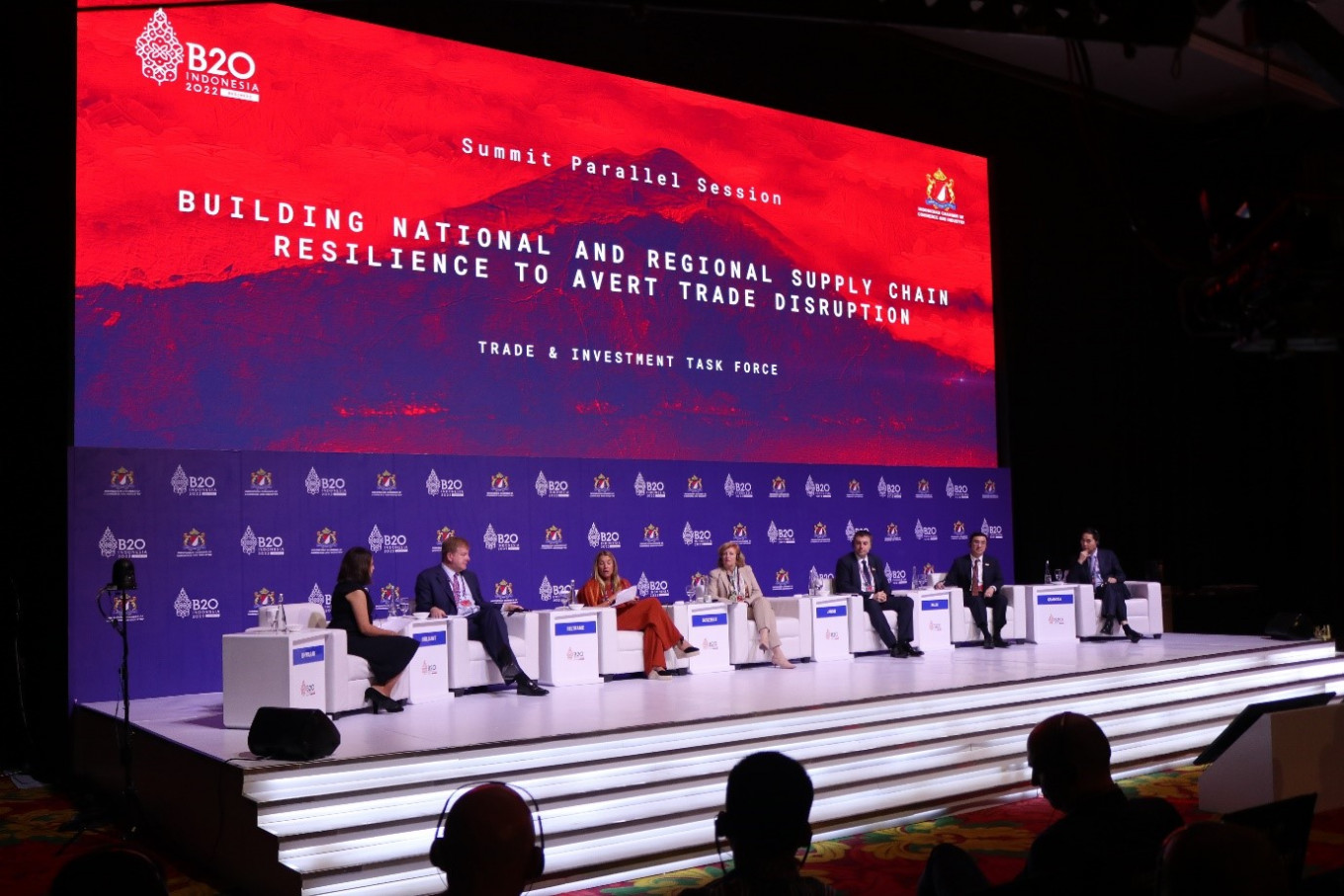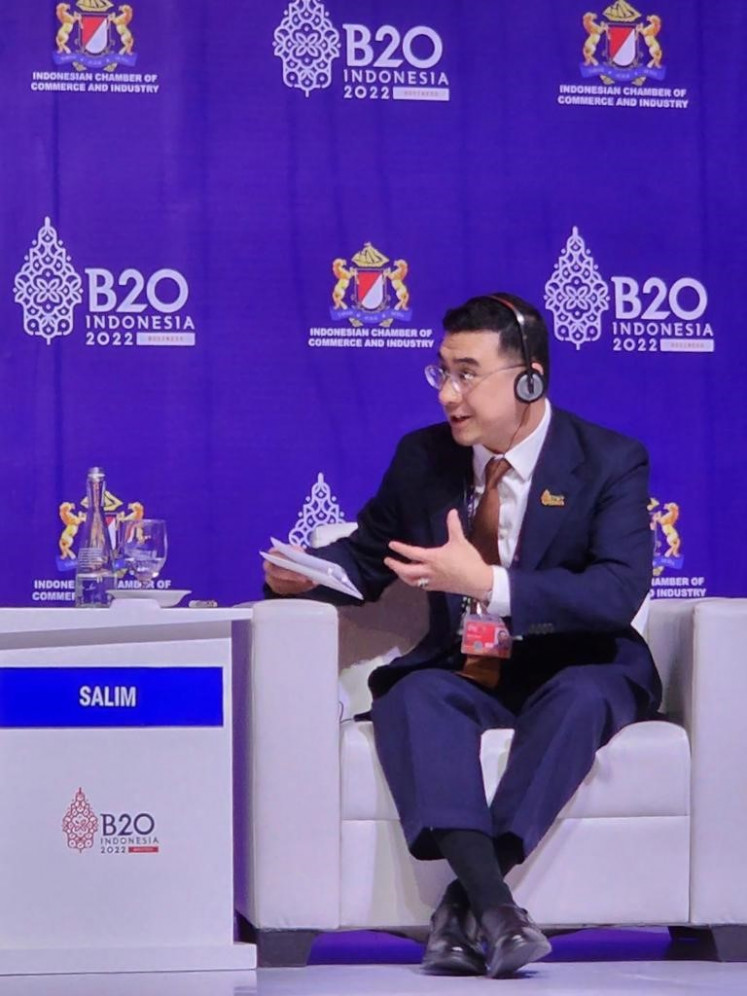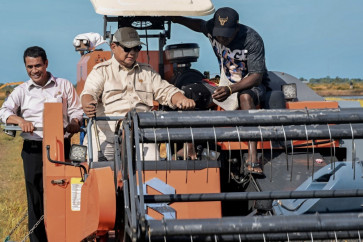Popular Reads
Top Results
Can't find what you're looking for?
View all search resultsPopular Reads
Top Results
Can't find what you're looking for?
View all search resultsIndofood fosters local partnership to lessen impact of global supply chain disruption
The Business 20 Summit (B20) has commenced in Nusa Dua, with the six task forces and one action council setting forth their agenda and policy recommendations for the future.
Change text size
Gift Premium Articles
to Anyone
T
he Business 20 Summit (B20) has commenced in Nusa Dua, with the six task forces and one action council setting forth their agenda and policy recommendations for the future. Bearing the theme “Advancing Innovative, Inclusive and Collaborative Growth,” the Trade and Investment Task Force focuses on the goal of promoting open, fair and efficient global trade and investments after the pandemic.
Led by Arif Rachmat as chair of the task force, the summit was also attended by Jeffrey Sachs, president of the United Nations Sustainable Development Solutions Network (UN SDSN); Leon Wang, international executive vice president and China president of AstraZeneca; Myron Brilliant, executive vice president of the United States Chamber of Commerce; Vassilis Gkatzelis, president director of HM Sampoerna; Xiang Guangda, founder of Tsingshan Holding Group; and Axton Salim, director of Indofood Sukses Makmur.
As countries are focusing on economic recovery after the COVID-19 pandemic, the whole world is bracing for the effects of climate change and geopolitical tensions that are bound to affect the economic situation of the world. These disruptions have also highlighted the vulnerability of global value chains (GVCs) and the need to diversify supply chain options to include a more regionalized model that is closer to end markets for critical resources.
As home to more than 270 million people, Indonesia has a large role in global supply chains as the 11th largest global importer of wheat. Moreover, it is the largest producer of vegetable oils, producing 20 percent of total global production and accounting for over 30 percent of global vegetable oil export.
While the Indonesian government has prioritized the importance of collaboration and inclusivity as host of the Group of 20, they are aware that the country has to rely on the global food supply chain to sustain the needs of the people, particularly for staples that must be imported, such as wheat.
Communication with the government, especially for shared objectives and public-private partnerships, is crucial in building supply chain resilience on a local level. Meanwhile, on a global scale, G20 member countries can impose fewer trade barriers or import restrictions and allow more free trade agreements for the smooth flow of goods.
Geopolitical tensions have had a large impact on the GVC, disrupting trade worldwide. Therefore, Indofood recognizes the importance of strengthening its partnership with local micro, small and medium enterprises (MSMEs) to help lessen the impact and to create a more resilient economy. Methods such as multi-sourcing and the building of capacity and resilience in local farmers are important to balance import and local supply.
“With the inclusive business model, Indofood has empowered thousands of farmers, MSMEs and their families. This collaboration has not only generated sustainable growth for Indofood as a company but has also strengthened the economy of communities along our value chain,” Indofood director Axton said.
The company has to turn to local farmers to secure their supply of raw materials, building a partnership with more than 20,000 farmers of potatoes, chili and cassava, coconut tappers and dairy farmers, as well as 48,000 palm oil plasma smallholders. Furthermore, the company has developed an industrial potato seed production to reduce the volume of imported potatoes.
“This is an example of how we can utilize local sources – land, manpower, man hours – to increase local production. Hopefully, this is an example that we can replicate in other crops, livestock and regions and hence increase local resilience for food security while creating economic opportunities for the local people,” Salim added.
By using a closed-loop system, Indofood is instrumental in ensuring good agricultural practices (GAP) support, climate change risk mapping and mitigation through public-private partnership with the government, farmers and relevant stakeholders. The system is expected to lessen GVC disruptions and create a more resilient economy to decrease reliance on imports.











